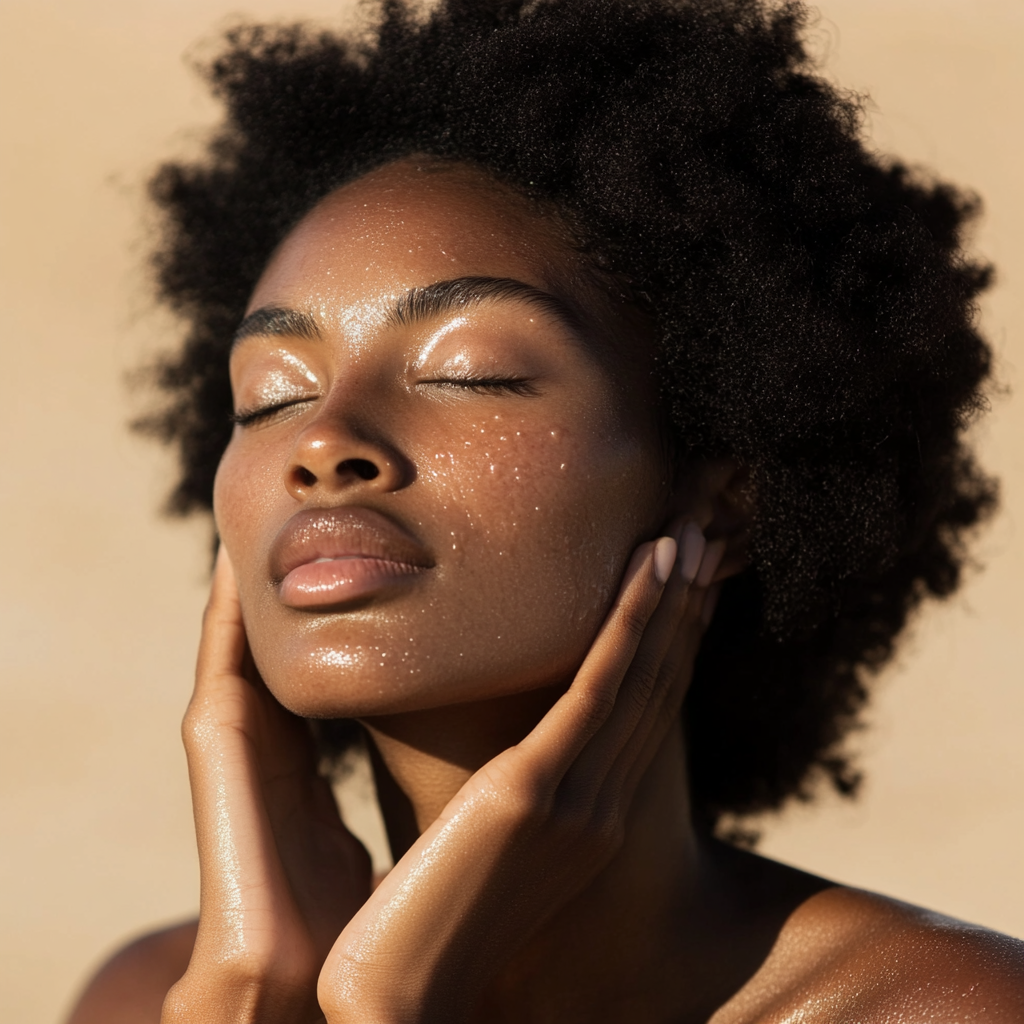
A Guide to Thriving with Skin
Eczema, a chronic skin condition that causes itchy, dry, and inflamed patches, affects people of all races. However, Black women face unique challenges when managing eczema. From societal perceptions to finding effective treatments, navigating eczema can be a complex journey. In this blog post, we’ll explore the ins and outs of eczema in Black women, offering practical tips, inspiring stories, and scientific insights to help you embrace your skin and live your best life.
Understanding Eczema in Black Women
Eczema can manifest differently in Black women compared to other skin tones. It may appear as darker, ashy patches, often mistaken for hyperpigmentation or other skin conditions. This can lead to misdiagnosis and delayed treatment. Additionally, certain eczema treatments may not be as effective for Black women due to differences in skin physiology and melanin levels.
Let’s dispel some common myths about eczema in Black women:
Busting Myths and Misconceptions
- Myth: Eczema is less common in Black people. Fact: While it’s true that eczema is more prevalent in certain populations, it can affect anyone regardless of race.
- Myth: Darker skin tones are less prone to eczema. Fact: This is a misconception. Eczema can occur in people of all skin colors.
- Myth: Eczema is a sign of poor hygiene. Fact: Eczema is not caused by dirt or lack of cleanliness. It’s a skin condition with complex underlying factors.
Embracing Your Skin: A Journey of Self-Love
Living with eczema can be challenging, but it’s important to remember that you are not alone. Embrace your skin and celebrate its unique beauty. Here are some tips to help you on your journey:
- Challenge negative stereotypes: Don’t let societal beauty standards dictate your self-worth. Your skin is beautiful, regardless of its imperfections.
- Find a supportive community: Connect with other Black women who understand your experiences and can offer empathy and encouragement.
- Practice self-care: Take time for activities that nourish your mind, body, and soul. This could include meditation, yoga, spending time in nature, or engaging in hobbies you enjoy.

Managing Eczema: Practical Tips and Scientific Insights
Effective eczema management requires a personalized approach. Here are some strategies to consider:
When it comes to managing eczema in Black women, your skincare routine is your first line of defense. Think of it as your armor, protecting your skin from the harsh elements and potential irritants that can trigger flare-ups. The key here is to use gentle, fragrance-free products that provide deep hydration.
Moisturize, Moisturize, Moisturize: Yes, I said it three times because it’s that important. Black women’s skin naturally loses moisture more quickly due to lower levels of ceramides—those little lipids that help keep our skin barrier intact. Choose a thick, emollient cream like shea butter or a product containing hyaluronic acid to lock in moisture.
Avoid Triggers: This might sound like common sense, but it’s easier said than done. Common triggers for eczema include certain fabrics (like wool), harsh soaps, and even stress. Yes, stress! The mind-body connection is real, sis. Studies show that stress can exacerbate eczema symptoms, so finding ways to manage stress, like yoga or meditation, can be a game-changer.
Gentle Cleansing: A harsh cleanser can strip your skin of its natural oils, leaving it vulnerable to eczema. Opt for a mild, sulfate-free cleanser that won’t dry out your skin.
Food for Thought: Nutrition and Eczema
Believe it or not, what you eat can affect your skin. A diet rich in anti-inflammatory foods can help in managing eczema in Black women. Omega-3 fatty acids found in fish like salmon, as well as flaxseed and walnuts, are known for their skin-soothing properties. Also, consider adding foods high in vitamin E, like almonds and sunflower seeds, to your diet to help protect your skin from oxidative stress.
Consider medical treatments: If over-the-counter treatments aren’t enough, consult a dermatologist to discuss prescription options, such as topical corticosteroids or calcineurin inhibitors.
One personal story comes to mind. I once met a woman at a wellness retreat who swore by her daily green smoothie to keep her skin in check. She had been battling eczema for years, trying every cream under the sun, but it wasn’t until she started focusing on her diet that she saw real improvement. Her secret? A mix of spinach, kale, a handful of berries, and a spoonful of flaxseed oil. It wasn’t a miracle cure, but it certainly helped reduce her flare-ups.
Seeking Professional Help: It’s Okay to Ask for Help
Sometimes, managing eczema in Black women requires more than just over-the-counter creams and home remedies. If your eczema is severe, it’s important to consult with a dermatologist who understands Black skin. In fact, research has shown that Black patients are less likely to be referred to dermatologists than their white counterparts, which can lead to under-treatment. Don’t be afraid to advocate for yourself and seek out a dermatologist who is knowledgeable about the unique needs of Black skin.
In some cases, your doctor may recommend prescription treatments, such as topical steroids or even phototherapy. There are also new treatments on the horizon, like biologics, which target specific parts of the immune system involved in eczema. While these options may sound intimidating, they could provide significant relief if other treatments haven’t worked.
Self-Care and Mental Health: Loving the Skin You’re In
Lastly, let’s talk about self-care. Managing eczema in Black women isn’t just about what you put on your skin it’s also about how you feel in your skin. Eczema can take a toll on your mental health, leading to feelings of frustration, sadness, or even depression. It’s crucial to take time for yourself, whether that’s indulging in a spa day at home, practicing mindfulness, or simply reminding yourself that you are beautiful, eczema and all.
Remember, sis, handle challenges with grace and power. Eczema is just one part of your journey, not the whole story.
Conclusion
Managing eczema in Black women requires a holistic approach that considers the unique needs of melanin-rich skin. From choosing the right skincare products to nourishing your body with the right foods, there are multiple ways to keep your eczema under control. But perhaps the most important aspect of managing eczema is maintaining a positive self-image. You can thrive with eczema and live a fulfilling life. Remember, you are not alone, and there is hope for managing this condition. Your beauty shines from within, and eczema is just a small part of who you are.


